Biomedical calibration services are crucial for ensuring the accuracy and precision of medical devices used in healthcare settings. These services involve the meticulous calibration and maintenance of equipment to ensure it meets regulatory standards and delivers accurate results. In this article, we will explore electrical calibration equipment the importance of biomedical calibration services for medical devices, and how they play a vital role in ensuring the safety and effectiveness of healthcare practices.
Ensuring Precision is a biomedical calibration service that specializes in providing accurate and reliable calibration for medical devices. load cell calibration equipment Our services ensure that medical equipment meets industry standards and regulatory requirements, resulting in improved accuracy and efficacy of medical treatments. We offer calibration services for a wide range of medical devices, including diagnostic equipment, surgical instruments, patient monitoring devices, and more. Our team of experienced technicians uses state-of-the-art equipment and strict quality control measures to provide precise and consistent calibration services. We understand the critical nature of medical device accuracy and work diligently to ensure that all equipment meets or exceeds the required standards. With Ensuring Precision, healthcare providers can have confidence in the reliability and accuracy of their medical equipment.
Understanding the Importance of Biomedical Calibration Services
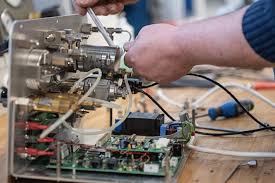
on site calibration services Biomedical calibration services are crucial in ensuring the accuracy and reliability of medical equipment used in diagnosis, treatment, and research. These services involve the regular testing and adjustment of instruments such as blood pressure monitors, ECG machines, and defibrillators to maintain their precision and adherence to industry standards. Proper calibration helps to minimize the risk of inaccurate readings and improper treatment, ultimately contributing to better patient outcomes and safety. Additionally, adherence to calibration requirements is often a regulatory and accreditation requirement for healthcare facilities and laboratories. Investing in reliable biomedical calibration services is essential for maintaining the quality and effectiveness of medical equipment and ensuring compliance with industry standards and regulations.
The Role of Biomedical Calibration Services in Healthcare Technology
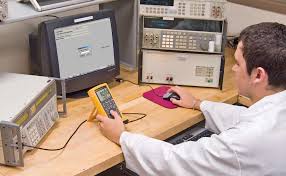
Biomedical calibration services play a crucial role in ensuring the accuracy and reliability of healthcare technology. These services involve the calibration of medical devices and equipment to ensure that they perform within specified parameters and meet regulatory standards. By maintaining accurate calibration, healthcare organizations can ensure the safety and effectiveness of medical equipment, as well as improve the quality of patient care. Additionally, regular calibration can help prevent equipment malfunctions and minimize the risk of errors in diagnosis and treatment. Overall, biomedical calibration services are essential in supporting the functionality and performance of healthcare technology in a clinical setting.
Choosing the Right Provider for Biomedical Calibration Services
weigh scale calibration services
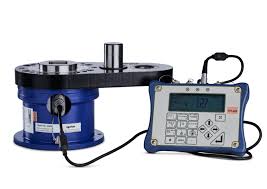
When choosing the right provider for biomedical calibration services, it is essential to consider factors such as the provider's accreditation and certification, industry experience, reputation, the range of services offered, and the quality of their customer support. Look for a provider that is certified by relevant regulatory bodies and has a proven track record of delivering accurate and reliable calibration services. It is also important to ensure that the provider offers a comprehensive range of calibration services to meet your specific needs and that they have a reputation for providing excellent customer support. Ultimately, choosing the right provider for biomedical calibration services is critical to ensuring the accuracy and reliability of your medical equipment.
The Impact of Biomedical Calibration Services on Patient Care
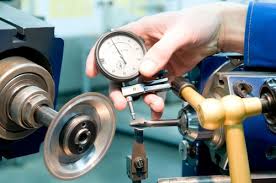
Biomedical calibration services play a crucial role in ensuring the accuracy and reliability of medical equipment used in patient care. Properly calibrated equipment is essential for providing accurate diagnoses, monitoring patient condition, and delivering effective treatments. Without accurate calibration, medical devices could potentially provide erroneous readings or measurements, leading to misdiagnoses, inappropriate treatments, or even patient harm. By utilizing biomedical calibration services, healthcare facilities can ensure that their equipment meets regulatory standards and performs optimally. This not only contributes to the quality of patient care but also enhances the efficiency and effectiveness of healthcare providers. Additionally, regular calibration and maintenance can extend the lifespan of medical equipment, reducing the need for expensive replacements and minimizing equipment downtime. Furthermore, calibration services help to safeguard patient safety by minimizing the risk of errors and malfunctions in medical devices. In an industry where precision and accuracy are paramount, the role of these services in maintaining the integrity of medical equipment cannot be overstated. Ultimately, the impact of biomedical calibration services on patient care is a critical component of delivering high-quality and reliable healthcare.
Quality Assurance in Healthcare: The Role of Biomedical Calibration Services
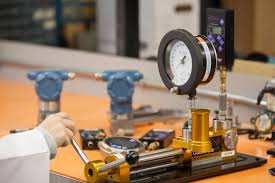
Quality assurance in healthcare is essential for ensuring the safety and effectiveness of medical equipment and devices. Biomedical calibration services play a crucial role in this process by ensuring that healthcare equipment is performing accurately and within the specified standards. These services involve the regular calibration and maintenance of medical devices such as infusion pumps, blood pressure monitors, and other equipment used in patient care. By regularly calibrating medical equipment, biomedical calibration services help to identify and rectify any deviations in the performance of the devices. This, in turn, helps to maintain the accuracy and reliability of these devices, thereby reducing the risk of errors in medical diagnosis and treatment. Additionally, adherence to calibration standards is necessary for meeting regulatory requirements and ensuring compliance with healthcare quality and safety guidelines. Overall, the role of biomedical calibration services in quality assurance in healthcare is critical for maintaining the standards and reliability of medical equipment, ultimately contributing to improved patient care and safety.
Maintaining Compliance with Biomedical Calibration Services Standards
Maintaining compliance with biomedical calibration services standards is essential for ensuring accurate and reliable measurements in healthcare settings. These standards are set by regulatory bodies such as the International Organization for Standardization (ISO) and the Food and Drug Administration (FDA). To maintain compliance with these standards, biomedical calibration services must regularly calibrate and test medical equipment to ensure it meets the necessary accuracy and precision requirements. This often involves performing regular inspections, adjustments, and, if necessary, repairs to ensure that equipment is operating within acceptable tolerances. Documentation is also a key aspect of maintaining compliance, as biomedical calibration services must keep accurate records of all calibration activities and maintain traceability to national or international standards. This includes documenting calibration dates, results, adjustments made, and any out-of-tolerance conditions. These records may be subject to audits by regulatory agencies. Additionally, biomedical calibration services must stay current with industry best practices and any updates to relevant standards. This may involve ongoing training and education for calibration technicians to ensure they are up-to-date with the latest requirements and methods. By prioritizing and maintaining compliance with biomedical calibration services standards, healthcare facilities can ensure the accuracy and reliability of their medical equipment, ultimately leading to improved patient care and safety.
The Cost-Benefit Analysis of Biomedical Calibration Services
The cost-benefit analysis of biomedical calibration services involves evaluating the potential advantages and disadvantages of investing in such services. This analysis typically considers the costs associated with calibrating and maintaining biomedical equipment, as well as the potential benefits, such as improved accuracy, reliability, and compliance with regulatory requirements. Factors such as the frequency of calibrations, the impact of equipment downtime, and the potential for reducing the risk of errors and safety incidents are also taken into account. Ultimately, the goal of the cost-benefit analysis is to determine whether the investment in biomedical calibration services is justified based on the overall value it provides to the organization.
Maximizing Efficiency with Biomedical Calibration Services
Biomedical calibration services help maximize efficiency by ensuring that medical equipment is functioning accurately and reliably. Proper calibration of equipment such as patient monitors, infusion pumps, and defibrillators is essential for accurate diagnosis and treatment of patients. By outsourcing biomedical calibration services to qualified professionals, healthcare facilities can focus on providing quality patient care while minimizing downtime and reducing the risk of errors in medical equipment. Additionally, regular calibration can extend the lifespan of medical equipment and contribute to cost savings in the long run.
The Evolution of Technology in Biomedical Calibration Services
The evolution of technology in biomedical calibration services has significantly improved the accuracy and reliability of medical equipment. Advancements in automation, sensor technology, and data analysis have allowed for more precise calibration of instruments such as medical imaging machines, patient monitors, and laboratory equipment. This has led to better diagnostic capabilities, enhanced patient care, and increased efficiency in healthcare facilities. Additionally, technological innovations have also enabled remote calibration services, reducing downtime and minimizing disruptions in medical operations. Overall, the integration of advanced technology in biomedical calibration services has revolutionized the healthcare industry and continues to drive improvements in patient outcomes.
The Future of Biomedical Calibration Services in Healthcare
Biomedical calibration services in healthcare are becoming increasingly vital as medical equipment becomes more complex and precise. As technology continues to advance, the demand for accurate calibration of biomedical equipment will only continue to grow. This is particularly important in healthcare settings, where the proper functioning of medical devices can have a direct impact on patient care and outcomes. The future of biomedical calibration services in healthcare will likely involve a greater emphasis on automation and digital processes. This will help to streamline calibration procedures, minimize human error, and ensure consistent and reliable results. Additionally, advancements in sensor and measurement technologies will enable more accurate and efficient calibration of a wide range of medical devices. Furthermore, the integration of artificial intelligence and machine learning algorithms into calibration processes has the potential to improve predictive maintenance and identify potential issues before they arise, thereby reducing equipment downtime and improving patient safety. Overall, the future of biomedical calibration services in healthcare will be characterized by the adoption of advanced technologies, increased automation, and a focus on delivering the highest level of accuracy and reliability in medical equipment calibration.